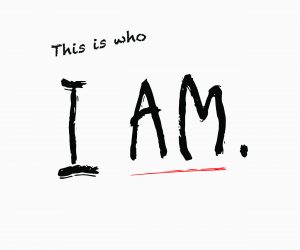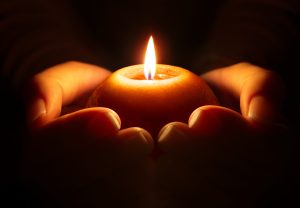Power to Girls – “This is who I am”
Confidence
Self -esteem
Believing in yourself
Finding out about ourselves
Trusting yourself
Loving who you are
– From the young women at Power to Girls, North York
Aisha Addo saw a need. She’d emigrated from Ghana when she was younger and had studied to be an accountant. But she realized that there was a split between what young women like her experienced in the communities they’d come to and what they knew from their homes- the expectations on how to behave, the criticism for what they wore – friction between the world they were adapting to and their families.
Ms. Addo decided that there needed to be someone who could be a kind of middle person between girls and their families, someone who could help people on both sides of issues understand what was happening – how life can be so different for young women as well as for the pressures families and their children face.

Proving boys are wrong when they say they are stronger than us. They say girls are weak; we want to show them we’re not
Experiencing negative talk, back talk – in the classroom, outside on social media – like how people post something and about you and put negative stuff on I it like you’re ugly, you’re fat, stupid
I feel like we’re comparing ourselves to other people
Girls in middle school and lower grades have similar burdens. Part of it is the bullying that cuts across society, Ms. Addo thinks. There are issues at home as girls try find their own way with their friends from different backgrounds. But often, they have to do that in communities that don’t have sufficient ways to support them.
About eight years ago she saw a girl being scolded by an older woman for what she was wearing and invited her to join a group of about 6 others at her church to talk about similar experiences. They all had questions about conflicts that arose from different expectations of their families. This grew to a larger mutual mentorship and then a conference of about 60 young women.
This work eventually turned into the Power to Girls Foundation which Ms. Addo believes works because women like her have the experiences with which younger women and girls can identify. They can develop a natural trust with them. Since then, Power to Girls has formed a partnership with the Toronto Catholic District School Board (TCDSB) and operates programs in 6 schools with 3 full-time staff and 20 volunteer facilitators who take a short training program on anti-oppression and developing skills at running groups.
They work with girls to help them find language to help explain and respond to some of the experiences they face. Supported by this, they can focus on communicating their thoughts, ideas and feelings about what sometimes happens in schools and the community. Usually the facilitators ask young women in the program, what they want to learn about – sexual education, peer pressure and issues like these. They don’t advocate directly for them, but work with them to develop the skills to speak out: who they need to approach, how to communicate, goal setting and how to get into a network of others with similar concerns. Power to Girls offers a safe place to talk about things you people may not have words to express, but judging from the 15 or 20 girls attending the group in North York, they will learn them.
 Sinead Coombs is the facilitator for this group of students in grades 6 to 8 who meet once a week. She says that there are a lot of body image and self-esteem issues among the girls. There’s bullying from peers and from some of the boys at the school, but a lot of the conflict comes from what she calls “drama”; the girls she sees need to learn how to address issues, just as the kids on the other side of the disputes and put-downs, need to learn how to deal with their own perceptions of a problem. Ms. Coombs has hit on something critical regarding power and conflict – in elementary school, so much depends on kids knowing how to respond to the things that worry and hurt them. There is no antidote to feeling that you’re less than others, but she stresses the idea, “This is who I am” as a place to start.
Sinead Coombs is the facilitator for this group of students in grades 6 to 8 who meet once a week. She says that there are a lot of body image and self-esteem issues among the girls. There’s bullying from peers and from some of the boys at the school, but a lot of the conflict comes from what she calls “drama”; the girls she sees need to learn how to address issues, just as the kids on the other side of the disputes and put-downs, need to learn how to deal with their own perceptions of a problem. Ms. Coombs has hit on something critical regarding power and conflict – in elementary school, so much depends on kids knowing how to respond to the things that worry and hurt them. There is no antidote to feeling that you’re less than others, but she stresses the idea, “This is who I am” as a place to start.
You can give that ‘look’
If someone calls me ugly, I say “Thank you. I don’t care. I love myself the way I am.”
I can say “You don’t know me – I don’t care.”
Just last week, she adds, the girls spent time discussing how to counteract negative talk. They worked together to come up with some possible strategies, mapped out results, thinking about the question: “Is that going to get you what you want?” But the important point here, Sinead Coombs thinks, is that they support each other over the months they are together and this has a strong effect on them. It helps them learn how to communicate what they need, “how they go out in the world.”
Girls don’t often feel connected to their schools, Aisha Addo believes. But she thinks they can feel connected to a program like Power to Girls because it gives them a space to imagine what they want to be.


